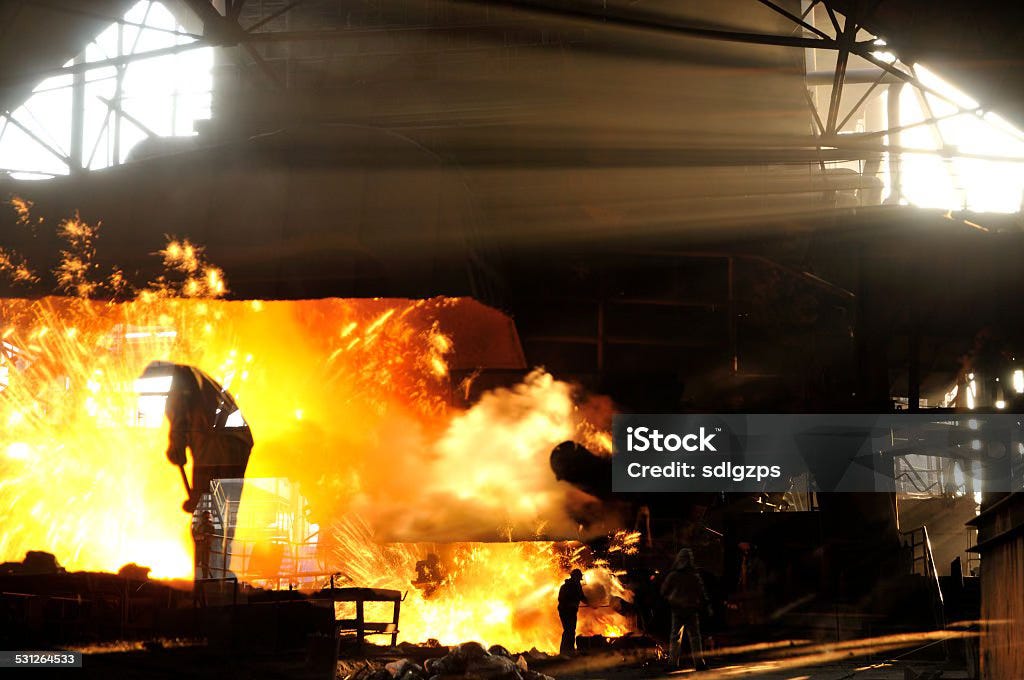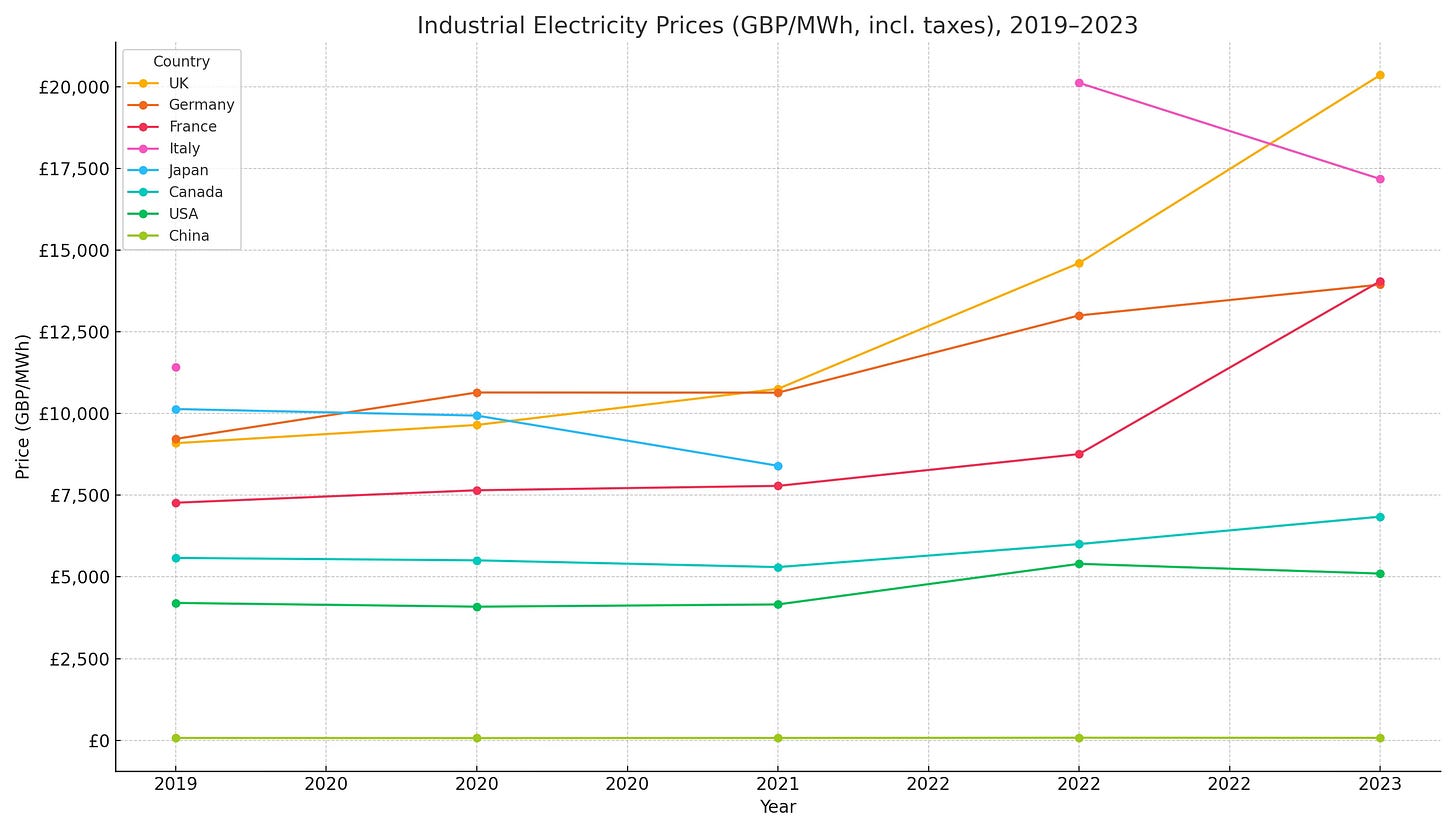Parasitic control is no basis for industrial security
The government's emergency steel legislation can't work - it tries to take parasitic control of the boardroom without risking its own resources.
The government is right to protect Scunthorpe's blast furnaces. Losing them would leave Britain the only G7 nation unable to produce virgin steel – primary steel made directly from iron ore rather than recycled scrap.
Without the power to create the raw material for sovereign defence manufacturing, critical infrastructure, and advanced engineering where the precise metallurgical composition required cannot be achieved through recycled materials alone, we would be leaving ourselves not just poorer but weaker, a strategic vulnerability without parallel among advanced economies.
The government's response – the Steel Industry (Special Measures) Bill – takes this threat and doubles it. Instead of responding by taking control through nationalisation, or creating a funding vehicle that offsets the inefficiencies of the current economic outlook, it cosplays Geppetto and turns Jingye’s Scunthorpe into a Pinocchio plant.
The government is cosplaying Geppetto
turning Jingye’s Scunthorpe into a Pinocchio plant.
Ministers will have the power to dictate British Steel's operations, hiring, expenditure and even prohibit insolvency proceedings – all under threat of criminal sanction – while leaving financial responsibility with Jingye Group. That won’t just shock Scunthorpe’s Chinese owners but every other investor in a business that Whitehall considers strategic. In essence, Westminster is legislating for control without ownership, coercion without investment.
You can see what they’re trying to do – stop the closure without deepening our national debt – but this arrangement serves neither public interest nor commercial reality. As Stanley Baldwin might observe, it is power without responsibility "the prerogative of the harlot throughout the ages". Business Secretary Jonathan Reynolds has chosen regulatory coercion over either nationalisation or creating viable commercial conditions. The message to international investors and British innovators alike is chilling: commit to strategic British sectors at your peril. Massive losses will be no excuse for closure.
It's hard to see how this will work, unless the government has access to Jingye’s overseas assets, something Beijing will never grant. The government will not control the group’s resources but exercise parasitic control over its functions. Since it bought the plant in 2020 pledging £1.2 billion to modernise the site, it has put £330 million into what was British Steel.
The government will not control the group’s resources
but exercise parasitic control over its functions.
New billet casters, scrap pre-heating, crane upgrades, and environmental emission control systems are not token gestures, but significant modernisation efforts in line with their promise. Clearly the relationship has broken down and now instead of building on that foundation, the government is compelling further commitments through force of law and under threat of prison.
Meanwhile, the fundamental causes of British steel’s decline remain unaddressed. UK manufacturers face industrial energy costs of £66 per megawatt-hour – 32% higher than Germany’s £50 and 53% above France’s £43. This punitive disparity stems from policy failures, for which Ed Miliband’s Department for Energy Security and Net Zero now bears direct responsibility. We demand our industry decarbonise faster than rivals abroad, yet deny it the energy platform required to do so competitively and now compel them to continue when they’re made unviable.
IEA figures shown in chart include taxes and levies, reflecting total end-user costs. UK government data (e.g. £66/MWh) excludes these, showing wholesale or contracted rates.
We were the first in the world to produce such steel, and the scale of retreat is stark. In 2023, the UK produced just 6.2 million tonnes of crude steel, while China produced over 1,000 million – more than 160 times as much. China subsidises its production. The US shields its own through tariffs. Even EU nations maintain strategic steel capacity with state support. Only Britain pursues ideological deindustrialisation disguised as environmental virtue. This isn’t decarbonisation, it’s disarmament.
This policy is flawed on both environmental and economic grounds. Shuttering blast furnaces and importing steel from coal-fired mills in China and India doesn’t reduce emissions – it shifts them offshore. When the steel for HS2 or a nuclear plant arrives from Asia, we haven’t gone green, we’ve gone silent. We’ve outsourced emissions, jobs, and strategic capability.
A serious commitment to decarbonisation would see investment in hydrogen-based steelmaking, carbon capture, and Electric Arc Furnaces – producing genuinely green steel onshore, under British control. This would serve both our climate obligations and strategic resilience.
A credible path forward already exists in Teesside. Planning permission, grid capacity, site readiness, skilled labour, and proximity to Britain’s largest freeport are all in place. Before the election, British Steel submitted a detailed proposal for a new electric arc furnace here. But political decision-making rerouted focus toward Scunthorpe’s legacy assets instead.
Ben Houchen, Mayor of Tees Valley, has provided the clearest voice in this debate: “Teesside is ready to deliver sovereign green steel at scale.” His advocacy has consistently prioritised national interest over party lines – championing a plan that is not just shovel-ready, but future-proof.
If ministers truly believe steel is strategic, they must act like it. That means public ownership where necessary, or conditions that enable genuine private investment. It means aligning energy pricing with European competitors. And it means backing Teesside as the best foundation for Britain’s green steel renaissance.
Britain has the skills, the sites, the market, and the need. What it lacks is not capacity, but clarity – the courage to admit that sovereignty requires investment, not just regulation. A nation that cannot produce its own steel is a nation that cannot secure its own future.
This is not abstract policy. In a world of escalating volatility, steel is national security. Without virgin steel, we cannot independently build the platforms, transport systems, or defence assets that sovereignty demands.
Scunthorpe’s furnaces are more than industrial hardware. They are an emblem. And today, they are warning us. That signal is flashing red. The government’s current course suggests it isn’t listening.







“Power without responsibility, the prerogative of the harlot throughout the ages” was Baldwin originally, I think suggested by his cousin, Rudyard Kipling.
Only if the Tories were serious about investing, maybe we wouldn't be here...